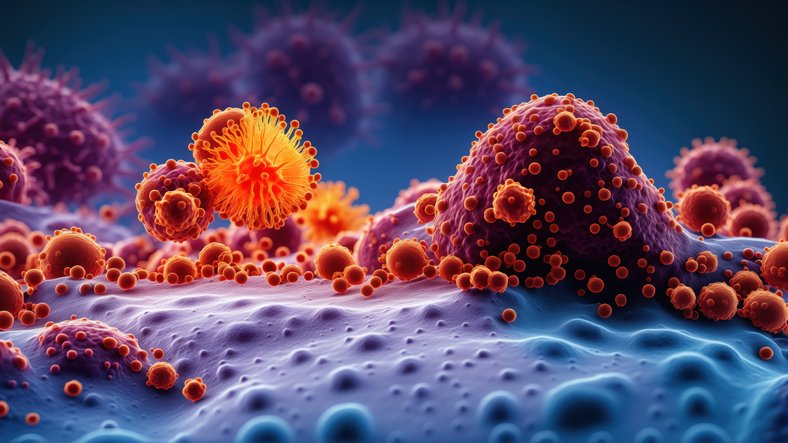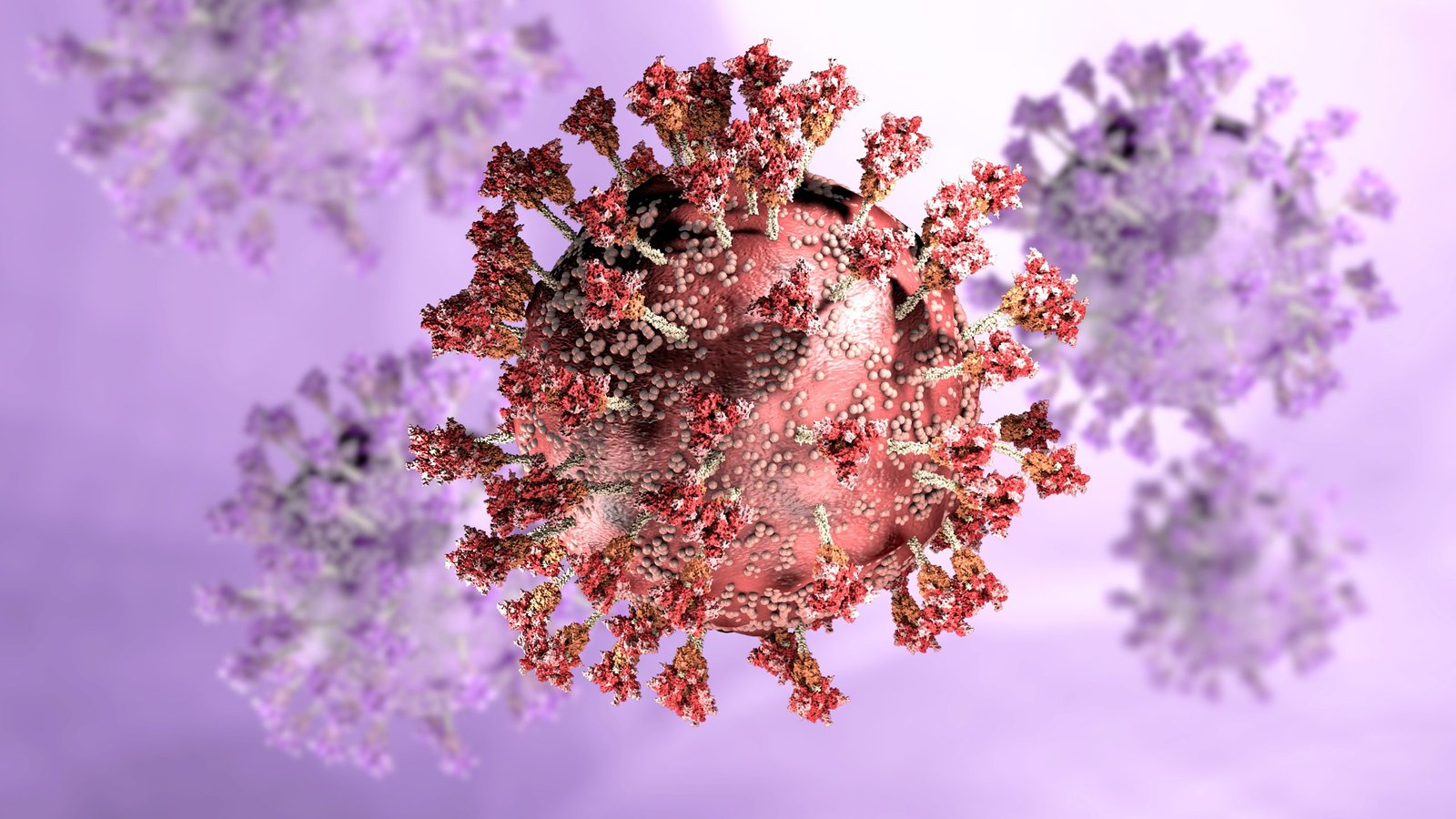Over the past 20 years, a class of anticancer drugs called CD40 agonist antibodies has shown great promise but also induced great disappointment. While such drugs have been effective at activating the immune system to kill cancer cells in animal models, they have demonstrated limited impact on patients in clinical trials, and even at a low dose caused dangerously systemic inflammatory responses, low platelet counts, and liver toxicity, among other adverse reactions.
In 2018, the lab of Rockefeller University’s Jeffrey V. Ravetch, MD, PhD, demonstrated it could engineer an enhanced CD40 agonistic antibody with improved efficacy, and which could be administered in a manner to limit serious side effects. Following preclinical studies with the drug—designated 2141.V11—in mouse models of human cancer, the researchers initiated a Phase I clinical trial evaluating intratumoral (i.t.) 2141.V11 delivery in 12 metastatic cancer patients.
Results from the first-in-human Phase I study (NCT04059588), now published in Cancer Cell, showed that of the 12 patients treated with 2141.V11, six exhibited tumor shrinkage, and of these six patients two demonstrated complete response, in melanoma and breast cancer respectively.
Notably, the effect wasn’t limited to tumors that were directly injected with the drug, the study showed that tumors elsewhere in the body either got smaller or were destroyed by immune cells. “This effect—where you inject locally but see a systemic response—that’s not something seen very often in any clinical treatment,” Ravetch notes. “It’s another very dramatic and unexpected result from our trial.”
“Seeing these significant shrinkages and even complete remission in such a small subset of patients is quite remarkable,” added first author Juan Osorio, MD, a visiting assistant professor in Ravetch’s Leonard Wagner Laboratory of Molecular Genetics and Immunology and a medical oncologist at Memorial Sloan Kettering Cancer Center.
The report in Cancer Cell is titled “Fc-optimized CD40 agonistic antibody elicits tertiary lymphoid structure formation and systemic antitumor immunity in metastatic cancer.” In their report the authors stated, “In this study, we demonstrate that i.t. administration of 2141-V11, an Fc-engineered CD40 agonist antibody, is safe and exhibits preliminary clinical antitumor efficacy…These findings demonstrate that i.t. 2141-V11 is safe and promotes immune-privileged tumor microenvironments that promote systemic and durable antitumor immunity.
CD40 is a cell surface receptor and member of the tumor necrosis factor (TNF) receptor superfamily of proteins that are largely expressed by immune cells. “CD40 is a member of the tumor necrosis receptor superfamily, expressed predominantly on antigen-presenting cells (APCs) such as dendritic cells (DCs), B cells, and macrophages,” the authors wrote. When triggered by binding to its ligand, CD40 ligand (CD1540, or an agonistic antibody), CD40 prompts the rest of the immune system to spring into action, initiating antitumor immunity and developing tumor-specific T cell responses. Activation of APCs is “…is critical for promoting antigen presentation by DCs, which is a crucial step to induce effective T cell responses,” the team continued.
CD40 agonism can enhances antitumor immunity but this approach is limited by systemic toxicity and poor efficacy, the researchers explained. “Over the last 20 years, several first-generation CD40 agonist Abs were developed and tested in patients with cancer. However, they demonstrated dose-limiting systemic toxicities…”
In 2018, Ravetch’s lab engineered 2141-V11, a CD40 antibody that binds tightly to human CD40 receptors and is modified to enhance its crosslinking by also engaging a specific Fc receptor. It proved to be 10 times more powerful in its capacity to elicit an antitumor immune response.
The investigators then changed how they administered the drug. The long-time approach had been to give it intravenously. But CD40 receptors are widespread, so too many non-cancerous cells pick it up, leading to the well-known toxic side effects. Instead, the researchers injected the drug directly into tumors. “By optimizing the Fc portion of the CD40 agonistic Ab, and by switching the administration route from systemic to i.t., we have addressed the challenges that have led to poor performance of prior anti-CD40 agonistic Abs,” they stated. “When we did that, we saw only mild toxicity,” Ravetch says.
Those findings became the basis of the Phase I clinical trial described in the newly reported study, which aimed to determine a starting clinical dose of the drug and better understand the mechanisms underlying its effectiveness. “The primary endpoint was to determine the maximum tolerated dose (MTD) and the recommended phase II dose (RP2D) of 2141-V11.” Secondary objectives included evaluating pharmacokinetics and preliminary clinical activity.
The trial included 12 patients presenting with various metastatic cancer types: melanoma, renal cell carcinoma, and different types of breast cancer, and who were tested across four dose levels. Of the 12 patients none suffered the serious side effects seen with other CD40 drugs, and no dose-limiting toxicities were observed.
Six patients experienced systemic tumor reduction, of which two had a complete response—meaning their cancer disappeared entirely. The two patients who experienced complete remission had melanoma and breast cancer, respectively, which can be aggressive and recurring.
“The melanoma patient had dozens of metastatic tumors on her leg and foot, and we injected just one tumor up on her thigh,” Ravetch says. “After multiple injections of that one tumor, all the other tumors disappeared. The same thing happened in the patient with metastatic breast cancer, who also had tumors in her skin, liver, and lung. And even though we only injected the skin tumor, we saw all the tumors disappear.”
Tissue samples from the tumor sites revealed the immune activity that the drug stimulated. “We were quite surprised to see that the tumors became full of immune cells—including different types of dendritic cells, T cells, and mature B cells—that formed aggregates resembling something like a lymph node,” Osorio commented. “The drug creates an immune microenvironment within the tumor, and essentially replaces the tumor with these tertiary lymphoid structures.” The authors added, “In patients achieving CR, we observed that treatment with 2141-V11 correlated with the presence of mature TLS, which were absent prior to treatment initiation.”
The presence of tertiary lymphoid structures (TLS) is associated with improved prognosis and response to immunotherapy, Osorio noted. “These ectopic lymphoid organs, composed of immune and non-immune elements, are increasingly recognized as privileged sites for immune cell infiltration, antigen presentation, and lymphocyte activation,” the investigators further noted.
They also found TLS in the tumors they didn’t inject. “Once the immune system identifies the cancer cells, immune cells migrate to the non-injected tumor sites,” Osorio said.
Noting limitations of their study, the authors wrote, “In summary, our study provides clinical proof-of-concept that i.t. 2141-V11 is a safe and potentially effective therapeutic approach for a subset of patients with cancer…Our preclinical models reveal that i.t. 2141-V11 promotes de novo TLS formation, enabling i.t. immune activation independent of T cell priming within tdLN [tumor-draining lymph node], offering a promising therapeutic strategy and a foundation for further clinical development.”
The findings have sparked a number of other clinical trials that the Ravetch lab is currently collaborating on with researchers at Memorial Sloan Kettering and Duke University. Now in either Phase I or Phase II study, the trials are investigating 2141-V11’s effect on specific cancers, including bladder cancer, prostate cancer, and glioblastoma—all aggressive and hard to treat. Collectively, nearly 200 people are enrolled in the studies.
These studies will help to illuminate why some patients respond to 2141-V11 and others do not—and how to potentially change that. For example, the two patients in the clinical trial whose cancer disappeared both had a high clonality of T cells—key cancer-cell killers—when they began the study. “This suggests there are some requirements from the immune system in order for this drug to work, and we’re in the process of dissecting these characteristics in more granular detail in these larger studies,” Osorio stated. “As a general rule, only 25 to 30% of patients will respond to immunotherapy, so the biggest challenge in the field is to try to determine which patients will benefit from it. What are the indicators or predictors of response? And how can we convert non-responders into responders?”
The post Metastatic Cancers Eliminated by CD40 Agnostic Antibody appeared first on GEN – Genetic Engineering and Biotechnology News.




